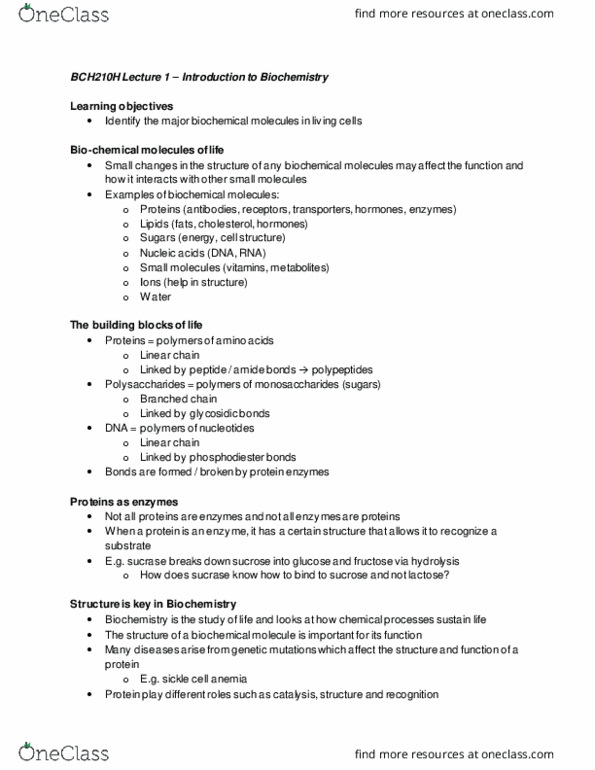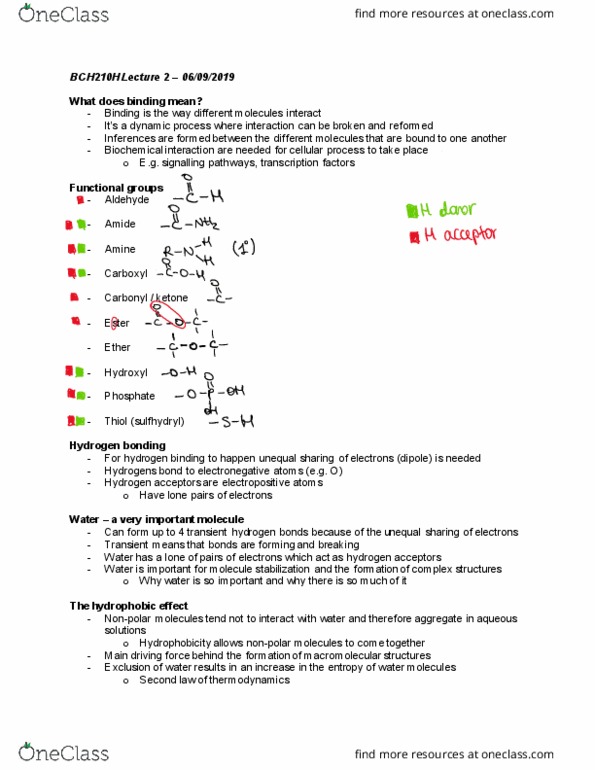BCH210H1 Lecture Notes - Lecture 3: Electronegativity, Thiol, Aldehyde
BCH210H1 verified notes
3/39View all
Document Summary
Binding is the way different molecules interact. Biochemical interaction are needed for cellular process to take place. It"s a dynamic process where interaction can be broken and reformed. Inferences are formed between the different molecules that are bound to one another: e. g. signalling pathways, transcription factors. For hydrogen binding to happen unequal sharing of electrons (dipole) is needed. Hydrogens bond to electronegative atoms (e. g. o) Hydrogen acceptors are electropositive atoms: have lone pairs of electrons. Can form up to 4 transient hydrogen bonds because of the unequal sharing of electrons. Transient means that bonds are forming and breaking. Water has a lone of pairs of electrons which act as hydrogen acceptors. Water is important for molecule stabilization and the formation of complex structures: why water is so important and why there is so much of it. Non-polar molecules tend not to interact with water and therefore aggregate in aqueous solutions: hydrophobicity allows non-polar molecules to come together.





